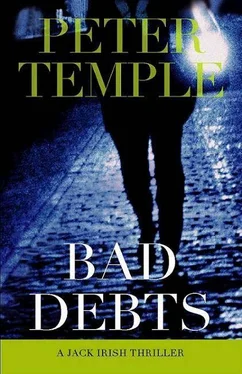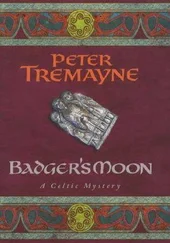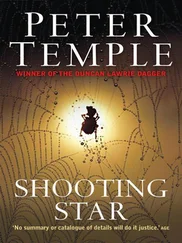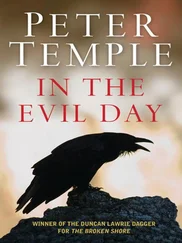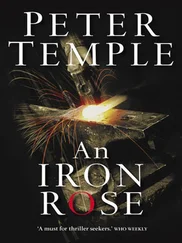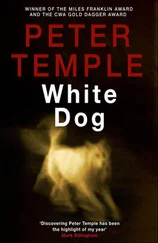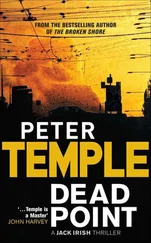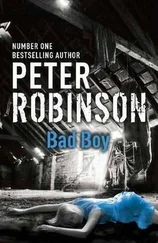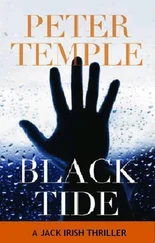The childhood memories started after Isabel’s death. They rise up in the margin between wakefulness and sleep and they lie on the mind like prints floating in fixer. All of them seem to date from the years before my father’s death. In one, I see the back of the house of my childhood friend Chris Freeborn. Chris’s little sister is outside the back door, stirring something in a zinc tub. Through the open back door I can see down a passage all the way to the street. There are people on the pavement outside, moving in and out of the frame of the front door. From inside the house, I can hear someone sobbing and saying something I cannot catch over and over again. In another, my mother is standing behind a high fence, her hands above shoulder-height, fingers hooked in the diamond mesh. She is wearing a dress with large spots on it and her hair is pulled back. The expression on her face is one of anxiety: her chin is lifted, her mouth is open slightly as if she is breathing shallowly through it. There are other women on either side of her, but she is not with them. I am looking at her from the other side of the fence and as I get closer I see that her left eye is full of blood.
These two memories and at least a dozen others fill me with unease, but they have no meaning. I have no other memories of Chris Freeborn’s house. Indeed, I cannot bring to mind Chris Freeborn’s face. Nor do I know anything about the fence behind which my mother stands. Or, in another memory, who the men are in the car full of cigarette smoke. Or, in another, why my mother and I are shivering in a doorway in the dark, hiding from the headlights of cars. There is no-one I can ask about them. My mother is dead, my sister was born after my father’s death, the Freeborn family is scattered to the winds.
At 5.40 a.m., exhausted, I declared the night at an end, got up and made a pot of tea. While it was drawing, I found a novel called Over Ice I had been meaning to finish. I read until 8 a.m., when I wrenched myself away from the excitement of a pension in postwar Vienna to clean the flat. Some of the flat. One room. Partly. At 8.30, I drove down Brunswick Street to Meaker’s. The street was almost empty, just me and a few party animals in leather and dark glasses moving towards the caffeine with the care of blind people in a strange place.
I almost missed the item on page five of the Age. ‘Former Minister found dead,’ the headline said. The story said Kevin Pixley had been found dead in the bathroom of his Brighton home. A heart attack was suspected. Mrs Pixley was in London.
What appetite I’d mustered was gone. In the night, I’d turned over the idea of going back to Pixley and putting Bruce’s accusations to him. In the end, I’d concluded that it would be pointless. Kevin Pixley wasn’t going to fall in a heap and confess anything to me.
And what did it matter? Guilt over Danny had started me off. Now I had little doubt that Danny had driven the car that killed Anne Jeppeson. I had nothing to feel guilty about.
I drank a short black and went around to Taub’s. The wood and oil smell of the workshop had the power to cheer me at even the lowest times. Down at my end of the workshop, Charlie had laid out on trestles the wood for my boardroom tabletop: three perfect walnut boards, fifteen feet long, eighteen inches wide and one-and-a-half inches thick. They came from what Charlie called The Bank, the timber stacked in the rafters. The first time Charlie had given me a job using timber from The Bank, I’d asked: ‘What’s this?’
‘Piece wood,’ Charlie said. ‘Swietenia mahagoni. Cuban mahogany. One hundred years old.’
‘I don’t think I’m quite ready for this,’ I said.
Charlie had taken the cheroot out of his mouth and given my statement some thought. ‘Jack,’ he said, ‘till you make something nice out of it, it’s just a piece wood.’
I studied the rough walnut boards with reverence. This was one of the classic furniture timbers. Very few makers ever had the chance to work with wood of this quality and size. I turned one of the boards over. Chalked on the other side was the date Charlie had laid the resawn boards down: 10/3/46. This wood’s moisture content was so low that not even the ducted central heating in some Collins Street tower was going to cause it to move. Did an emerging mining company deserve a table made from unobtainable timber air-dried for at least fifty years? Wouldn’t some lesser, wetter timber do? The miners wouldn’t notice. I’d once asked Charlie the same question about a bureau he was making for a hotel owner with drug connections. ‘This arschloch I’m not making it for,’ he said. ‘He’s just the first owner. I’m making it for all the owners.’
I set aside my feeling of awe, put on my overalls and went to work. I gave the boards a preliminary pass over the pride of Charlie’s life, a near-new high-speed 24-inch surface planer bought from a bankrupt furniture factory. I took off a tissue-paper-thin layer, exposing the figure in the wood. I went outside and stood in the drizzle for a few moments so that I could come back in and smell the fragrance of the walnut filling the workshop. After that, I gave the edges two passes each over the long-bed jointer to prepare them for edge-jointing. Then I set the planer and put the boards through again. They came out almost polished. I dipped a finger in a pot of Charlie’s own oil, cold-pressed linseed oil prepared on the workshop stove without chemicals. It was like putting a finger in honey. I drew a squiggle on one of the boards and rubbed the oil in. The wood came to life: smooth, fine-textured, glowing.
I had the three boards on the trestles, admiring the fit of my edge joints, when Drew said from the door, ‘I never saw you look at a client that way.’
I looked at my watch. Three hours had slipped by. ‘I never had a client wanted to be planed, jointed and oiled,’ I said.
We picked up Norm O’Neill and Eric Tanner at the Prince. Wilbur Ong was going to the game with his grandson, Derek Ong, society dentist.
‘They can’t give this bunch a sheilas a beltin, might as well merge with Brighton Bowls Club,’ Norm O’Neill said.
‘I heard Vanotti’s got a groin problem,’ said Eric Tanner. ‘There’s a number of the fellas got things missing in their groins,’ Norm said gloomily.
Things were more cheerful on the way back from the Western Oval. Things were riotous on the way back from the Western Oval. We’d beaten St Kilda 84-79. St Kilda was one of the league’s most improved sides and we’d come from behind to win. It was coming from four goals down-that was what mattered. That was the sweetness. Fitzroy had played its usual game: players dropping chest-marks and handballing at each other’s knees. But then, in the final quarter, Ansell and McCracken kicked two each. Then Grimmer kicked one. We were in front. And we stayed there, fighting off the Saints for ten agonising minutes. At the final siren, in the rain, we embraced one another and drank toasts from Drew’s little silver flask of malt whisky. Around us the Fitzroy supporters croaked out the club song with the joy that comes only to those who have kept the faith through the darkest nights.
At the Prince, the atmosphere was like VE Day. Even Stan was smiling. Even Stan’s wife cracked a joke. We had a few toasts, a few songs, relived a few great games. Then Drew and I took his car home and got a taxi to Vlado’s in Richmond. The warm room was full of Japanese tourists exclaiming at their handbag-sized steaks. We had almost finished ours and a bottle of ’88 Bailey’s shiraz when Drew said, ‘Hear anything more from that bloke who tried to heavy you?’
I told him about finding the two bodies.
He looked at the roof, looked at me. ‘Fucking oath, Jack. Have you gone completely out of your brain?’
Читать дальше
